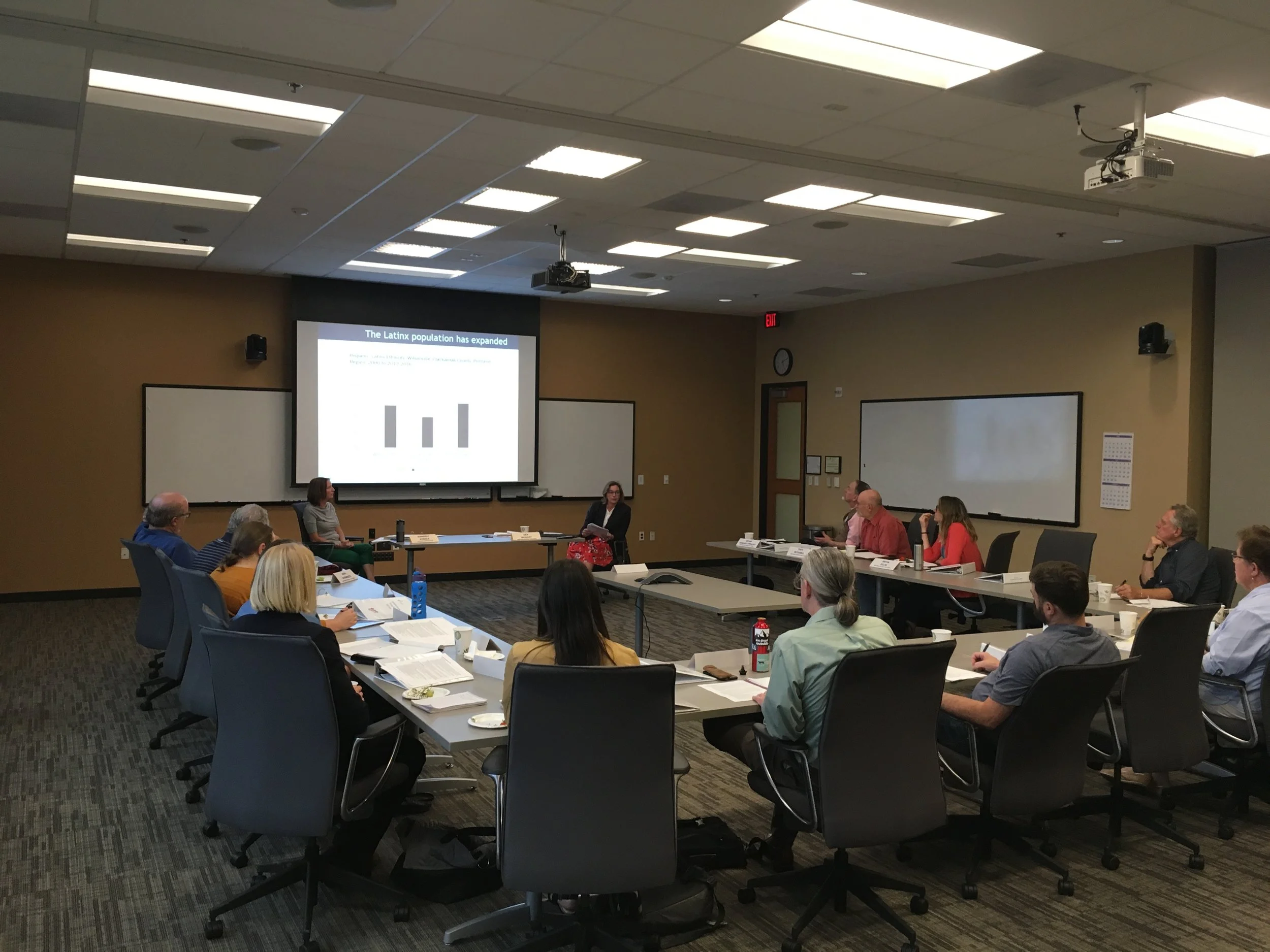In an effort to help others follow along and become engaged in the plan to address inequitable gaps in housing, I attended Wilsonville's July 17th meeting of the Equitable Housing Task Force and wrote a few thoughts.
Overview and quick takes
According to the project, “the primary goal of the Equitable Housing Strategic Plan is to identify gaps that are currently present in Wilsonville’s housing market and develop a plan with prioritized strategies to fill these gaps, providing Wilsonville residents and employees housing opportunities for different household compositions, ages and income ranges.” Although this definition builds off of Metro’s equity strategy (they are providing funding for this study), it sounds a lot like equality, more than equity. There’s a big difference between the two.
Planning for housing is happening all over the place (Clackamas County, Sherwood, and Tualatin). Recently passed HB2001 and HB2003 (more to come on these in a later post) will bring more housing planning, but the crucial question will be how aggressively do cities act to meet immediate needs.
It is unique that task force is comprised of housing professionals and no public comment is taken at meetings. Traditionally a roster professionals would be used as a technical advisory committee. But, I like this setup because the city wants people to get involved in established structures for public input, the Planning Commission and City Council.
Deb Meihoff, Communitas LLC, is an excellent facilitator and is needed to move the conversation into strategies and actions, instead of getting bogged in data. ECONorthwest’s institutional knowledge of the area’s economics is a quality backbone.
Using the housing study being conducted by Clackamas County is a great call. Housing markets are generally a regional market and understanding Wilsonville’s context within the market, not as a separate entity, is smart.
Where many other cities have a housing stock comprised of large multifamily buildings and single-family homes, Wilsonville is doing a great job with missing middle housing. Per the 2018 Wilsonville Housing Report, "row homes accounted for 37 and 31 percent of permitted single-family homes in 2017 and 2018, respectively." This is much higher than similar cities in the region.
Best exchange of the night
Ben West, City Councilor, directly questioned Rudy Kadlub, Villabois developer, about the cost of building affordable housing. Admittedly not for the Councilor’s knowledge, but for the group. Rudy gave a descriptive accounting of costs for land, construction, fees, and how unpredictable timelines can wreck financing.
Although Rudy and others chimed in to blame high housing costs on limited supply due to the Urban Growth Boundary (of which I am a fan), his identification of challenges with community engagement’s unpredictability and infrastructure costs are backed by research (National Apartment Association’s Barriers to Construction Index).
My unanswered questions
Per the 2018 Wilsonville Housing report, "under Metro’s forecast, Wilsonville will run out of residential land by about 2032, and if Wilsonville continues to grow at the rate it has over the past ten years, the city will consume its currently available residential land by about 2025."
I haven't been impressed with how Metro forecasts redevelopment land potential. Does it take into account the build-out of the Town Center Plan? What role could urban renewal play? I’m thinking about how we can speed up the implementation of the Town Center Plan to provide more housing options near established infrastructure and to support commercial activity.
What are we doing to make to achieve equity, not just equality? The decision-making framework and objectives seem to follow a very traditional path of a committee, stakeholder interviews, and Council decision (see project scope). I was pleased to see specific groups (Latinx and lower-income) called out in the presentation, but I hope we will see the same when it comes to strategies.
Next steps and your actions
What is your reaction? What do you want to know more about? Did you have the same questions? Contact me at garet.prior@gmail.com to discuss and collaborate on this project.
If you have comments or questions for the city, contact the project manager, Kimberly Rybold, at 503-570-1583 or rybold@ci.wilsonville.or.us, or email the Wilsonville Planning Commission and City Council (go to the Act page for one-click emails).
The next task force meeting will be in early September. To get on the interested parties list for updates, complete this online form.
Document links:

